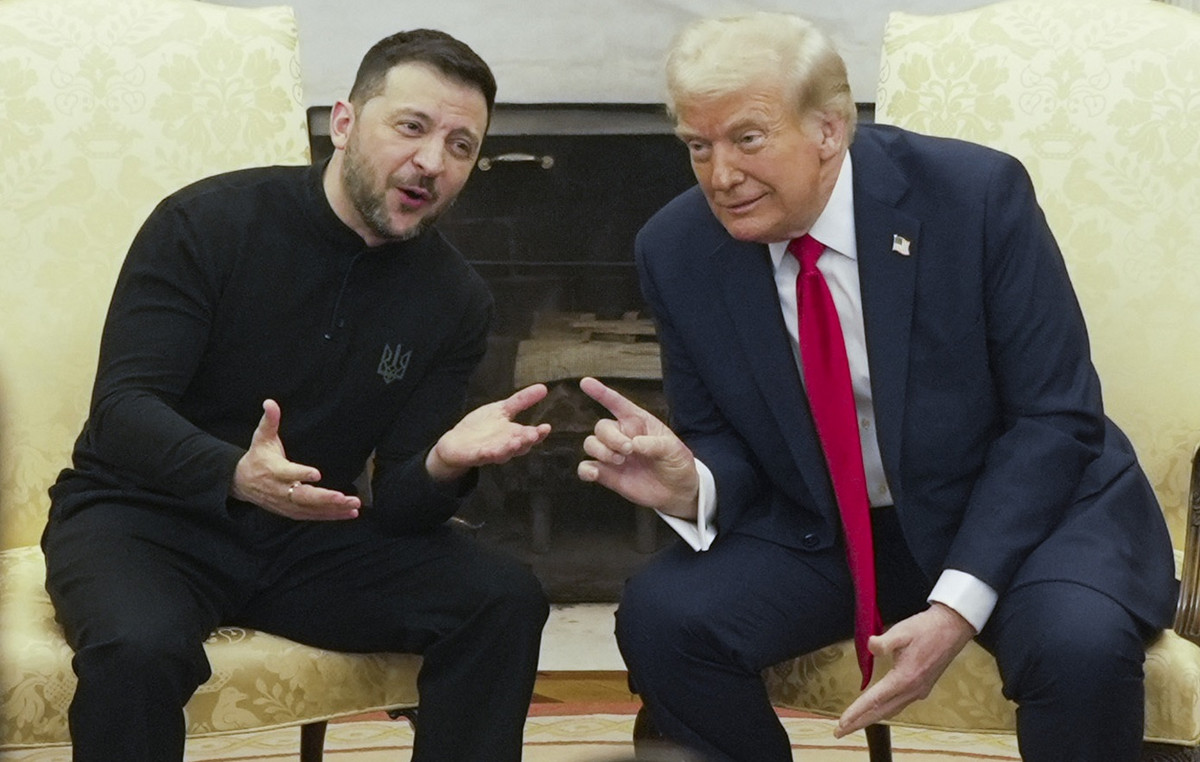THE Daniel Ellsberg, the former military analyst who leaked to the press the confidentially “Pentagon Papers” for vietnam war, revealing her US government fraud and at the same time sparking one of the most important battles for freedom of the press, died today at the age of 92. Ellsberg was diagnosed in February with inoperable pancreatic cancer. He died at his home in Kensington, California, his family announced and relayed the Athens News Agency.
Many years before EEdward Snowden and WikiLeaks, who revealed government secrets in the name of transparency, Ellsberg showed Americans that their government was capable of misleading them by lying to them. In the last years of his life he defended the witnesses of public interest. His own story was featured in the 2017 film The Post.
Ellsberg addressed the media on 1971 hoping it could hasten the end of the Vietnam War. He thus became the target of a smear campaign by then President Richard Nixon’s White House. Henry Kissinger, then the president’s national security adviser, called him “the most dangerous man in America who must be stopped at all costs.”
When he was sent to Saigon by the State Department in the mid-1960s, Ellsberg already had an impressive resume: he had three degrees from Harvard, served in the Marines, and worked at the Pentagon and the American RAND Corporation, a highly influential institute of studies. At the time he was a supporter of the Cold War and a Vietnam “hawk”. In his 2003 memoir, Secrets: Memories of Vietnam and the Pentagon Papers, he admitted that he had only been in Saigon for a week (his tenure would have been two years) when he realized that the US was involved in a a war they would not win.
Meanwhile, at the behest of Defense Secretary Robert McNamara, Pentagon officials secretly compiled a 7,000-page report on US involvement in Vietnam from 1945 to 1967. When they finished it, two of the 15 copies were sent to the RAND Corporation, where Ellsberg was back and working.
Anti-war demonstrations
Having a new, different understanding of the war, Ellsberg began participating in anti-war demonstrations. Ehe said he had the idea of making copies of the Pentagon Papers after hearing a protester say he couldn’t wait to go to jail for refusing the draft.
Ellsberg then began sneaking the classified study out of the RAND offices and making copies with a rented photocopier, with the help of his 13-year-old son and 10-year-old daughter. He took the documents with him when he moved to Boston to work at MIT and kept them for a year and a half, until he gave some pages to the New York Times. The newspaper published a first part of the Pentagon Papers on June 13, 1971. The Nixon administration asked a judge to stop the reports, citing him Espionage Act. Ellsberg then gave the Papers to the Washington Post and about a dozen other newspapers. About three weeks after the first report, the Supreme Court, in the case against the New York Times, ruled that the press had the right to publish the report.
The documents revealed that US officials had concluded that the US probably could not win the war and that President John F Kennedy had approved plans for a coup to overthrow the South Vietnamese leadership. Kennedy’s successor, Lyndon Johnson, planned to expand the war by bombing North Vietnam, even though he had said during the campaign that he would not. The documents also talked about US secret bombings in Cambodia and Laos and revealed that the death toll was higher than the authorities admitted.
THE NYT never revealed who leaked the documents, but the FBI very quickly came up with the name of Ellsberg, who went into hiding for two weeks and then turned himself in, in Boston.
“I felt that as an American citizen, as a responsible citizen, I could no longer cooperate in hiding this information from the American public,” he said at the time, stressing that he was “prepared to suffer all the consequences” of his act.
I regret iteh only because he didn’t leak the documents earlier.
Although the Pentagon Papers did not touch upon the Nixon administration and its handling of Vietnam, the White House Plumbers, the secretive Special Investigations group that later orchestrated the Watergate break-in at Democratic Party offices, were ordered to stop the leaks and discredit Ellsberg.
Two and a half months after the first reports, two men who would later become famous because of the Watergate scandal, J. Gordon Lindy and E. Howard Hunt, they broke into the office of Ellsberg’s psychiatrist, looking for incriminating evidence.
Ellsberg and a colleague at RAND were eventually charged with espionage, theft, and conspiracy. But at trial in 1973, the case was thrown out when government irregularities and the burglary were revealed.
In the following years, Ellsberg wrote books and lectured in favor of transparency and against nuclear proliferation. He defended Edward Snowden, saying he did nothing wrong when he gave reporters thousands of classified government documents about the surveillance of citizens by US agencies. He also said he considers soldier Chelsea Manning, who gave thousands of documents to the WikiLeaks website, a hero.
The once top secret documents that Ellsberg revealed are now online for anyone to read here.
Source: News Beast
With 6 years of experience, I bring to the table captivating and informative writing in the world news category. My expertise covers a range of industries, including tourism, technology, forex and stocks. From brief social media posts to in-depth articles, I am dedicated to creating compelling content for various platforms.







